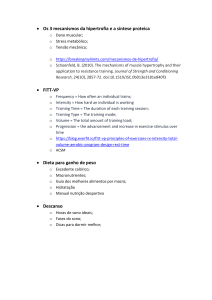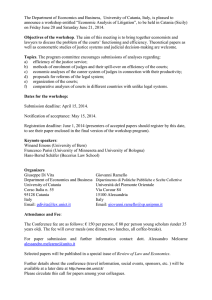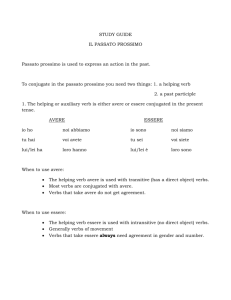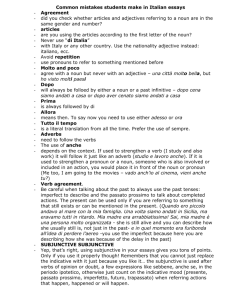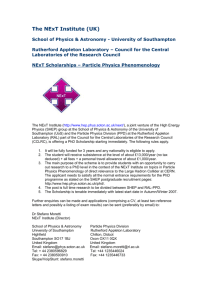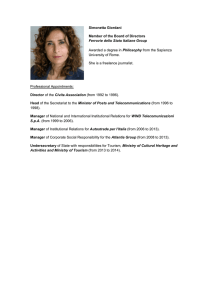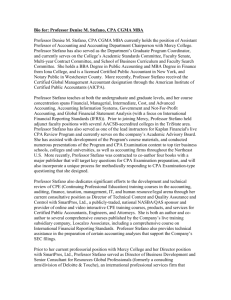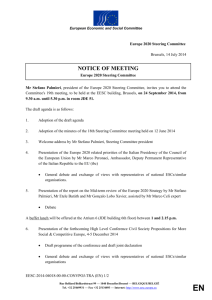Andante: beginners' Italian Talking about recent holidays Hello, and
advertisement
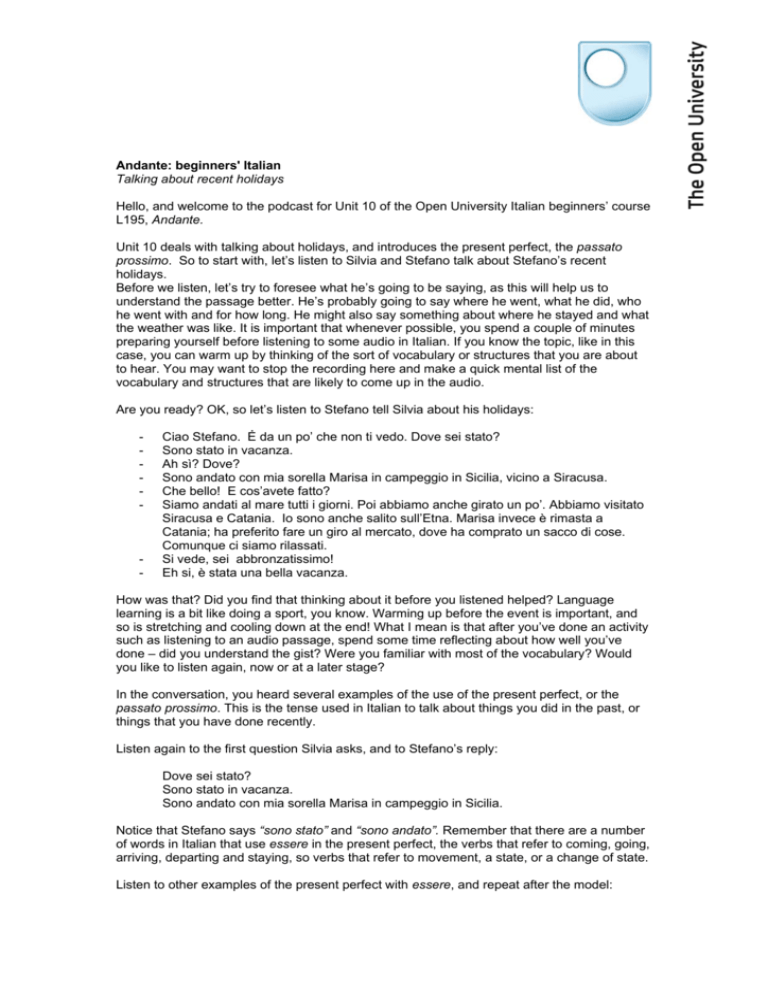
Andante: beginners' Italian Talking about recent holidays Hello, and welcome to the podcast for Unit 10 of the Open University Italian beginners’ course L195, Andante. Unit 10 deals with talking about holidays, and introduces the present perfect, the passato prossimo. So to start with, let’s listen to Silvia and Stefano talk about Stefano’s recent holidays. Before we listen, let’s try to foresee what he’s going to be saying, as this will help us to understand the passage better. He’s probably going to say where he went, what he did, who he went with and for how long. He might also say something about where he stayed and what the weather was like. It is important that whenever possible, you spend a couple of minutes preparing yourself before listening to some audio in Italian. If you know the topic, like in this case, you can warm up by thinking of the sort of vocabulary or structures that you are about to hear. You may want to stop the recording here and make a quick mental list of the vocabulary and structures that are likely to come up in the audio. Are you ready? OK, so let’s listen to Stefano tell Silvia about his holidays: - - Ciao Stefano. Ė da un po’ che non ti vedo. Dove sei stato? Sono stato in vacanza. Ah sì? Dove? Sono andato con mia sorella Marisa in campeggio in Sicilia, vicino a Siracusa. Che bello! E cos’avete fatto? Siamo andati al mare tutti i giorni. Poi abbiamo anche girato un po’. Abbiamo visitato Siracusa e Catania. Io sono anche salito sull’Etna. Marisa invece è rimasta a Catania; ha preferito fare un giro al mercato, dove ha comprato un sacco di cose. Comunque ci siamo rilassati. Si vede, sei abbronzatissimo! Eh si, è stata una bella vacanza. How was that? Did you find that thinking about it before you listened helped? Language learning is a bit like doing a sport, you know. Warming up before the event is important, and so is stretching and cooling down at the end! What I mean is that after you’ve done an activity such as listening to an audio passage, spend some time reflecting about how well you’ve done – did you understand the gist? Were you familiar with most of the vocabulary? Would you like to listen again, now or at a later stage? In the conversation, you heard several examples of the use of the present perfect, or the passato prossimo. This is the tense used in Italian to talk about things you did in the past, or things that you have done recently. Listen again to the first question Silvia asks, and to Stefano’s reply: Dove sei stato? Sono stato in vacanza. Sono andato con mia sorella Marisa in campeggio in Sicilia. Notice that Stefano says “sono stato” and “sono andato”. Remember that there are a number of words in Italian that use essere in the present perfect, the verbs that refer to coming, going, arriving, departing and staying, so verbs that refer to movement, a state, or a change of state. Listen to other examples of the present perfect with essere, and repeat after the model: We went to the beach every day: Siamo andati al mare tutti i giorni. I also went up Mount Etna: Io sono anche salito sull’ Etna. Marisa instead stayed in Catania: Marisa invece è rimasta a Catania. And to finish with, Stefano said two very useful phrases for talking about a holiday. Listen and repeat after him: Comunque ci siamo rilassati. È stata una bella vacanza. In the dialogue, Silvia also asks what Stefano and his sister did: Che bello! E cos’avete fatto? Notice that in this case, the present perfect is formed with the verb avere. You will cover this in Unit 11 in more detail, however, notice that the present perfect of most verbs is formed with avere. Listen to other examples of the present perfect with the auxilliary avere in the dialogue: We also went out and about: Abbiamo anche girato un po’. We visited Siracusa and Catania: Abbiamo visitato Siracusa e Catania. She preferred to go to the market, where she bought loads of things: Ha preferito fare un giro al mercato, dove ha comprato un sacco di cose. Don’t worry if you are not familiar with the present perfect with avere yet, you will come across it in Unit 11. The important thing is to reflect on whether you understood the gist of the dialogue, even if you couldn’t make sense of every single word or structure used.
